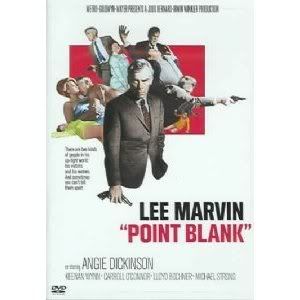Last week, there was an open
letter drafted by many of today’s biggest Hollywood players regarding Direct-TV’s new “Home Premiere” on-demand service, which would rush select blockbuster movies into the home, with high-def quality, only 60 days after their premiere at your local multiplex. The letter raises concerns that reducing the theatrical window to 60 days would virtually eliminate the opportunity for platform releases to build up word-of-mouth on films like last year’s
Black Swan and
The King’s Speech. These are films you cannot successfully market without the benefit of a long-term release strategy.
It’s important to note that the letter does not address the day-and-date on-demand service that is happening with micro budget, arthouse, and foreign titles right now. As many communities do not have a revival or arthouse theater, day-and-date releases are seen as a benefit to filmmakers – providing distribution for niche films that would not be seen in most markets until home video anyway. Although not stated implicitly, what we’re really talking about here are those films that have the potential for success with general audiences – the “big” films that you see in most large chain theaters.
Here’s the argument: As theater attendance has steadily dropped with the rise of the “home theater”, this quicker on-demand service will contribute to further reduce the amount of time a film spends at the theater. The filmmakers believe that preserving the theatrical viewing experience is tantamount to the survival of the motion picture industry, and I agree. Not only is theatrical exhibition the primary source of revenue for most movies, but it is also the viewing environment for which these films are created.
In its current incarnation, however, the Direct-TV plan poses no great threat to anything. It calls for only one film to be available at a time, at the ridiculous price point of $29.99 for 48 hours of access. There is a sense that the filmmakers don’t expect it to be successful, but it’s a slippery slope, and their concerns about home video’s negative impact on theatrical exhibition have good foundation in historical precedent.
The home video market has been a major factor in the decline of attendance for years now, as the studios have continued, by choice, to hurry the home release of big movies in an attempt to capitalize on word of mouth from, and marketing dollars spent on, a film’s theatrical run. This, compounded by falling home video prices, has made it easier for consumers to rationalize not seeing a movie in the theater because of the affordability and convenience of renting or buying a video.
While I applaud these filmmakers for trying to get involved and help protect the business model that they feel is best for the survival of the industry, this letter completely fails to address the other key reason for falling attendance: the current state of the theater-going experience.
Rude customers who use their cell phones or talk during the main attraction act as though the theater is their personal living room. Poor projection and sound quality should not be an issue anymore with the technical advancements in exhibition, but they are. Lack of cleanliness is caused by both patrons who refuse to pick up after themselves and theaters being understaffed or not scheduling enough time between shows. It’s hard to make a case for anyone (especially families) to shell out the current prices when the conditions are so poor.
Improvement in the theatrical experience is the only thing that will sell more tickets and protect the industry from being cannibalized by the home video/video-on-demand markets. This would require a two-fold approach.
Firstly, the film industry needs to continue to push the limits of image and sound quality. This includes the use of large format film to give a sense of scale (like in
Inception and
The Dark Knight), an increase to higher frame rates*, exploring an increase in resolution quality for high definition**, and stereoscopic 3-D (No moaning please, for the right films, it’s awesome!), All these advancements will help keep the magic of the movies alive and the experience memorable.
Secondly, and most importantly, the exhibitors need to get their act together. Cleaner theaters, well maintained equipment (change a projector bulb once in a while), and better concessions are the basics – there is no excuse for missing these – ever! The tougher part will be for them to grow a backbone when it comes to enforcing their own policies regarding talking during the show, cell phone use, and general disrespect.
While it’s not surprising that the filmmakers who drafted this letter are obtuse to the current conditions of theater-going (most probably haven’t been to a theater with an average crowd in years), theater owners are definitely aware. The fact that they have not taken action, in an effort to create an environment that is inviting for all movie lovers, makes them negligent. They have no right to place the blame elsewhere for the loss of revenue that home video takes away.
As far as the filmmakers who drafted this letter are concerned, they need to start siding with the consumers who watch, rent, and buy their work. Both the falling standards of movie theaters, and the encroachment of home video on a film's theatrical window need to be addressed. If not, it won't matter whether the video is available 60 days or 6 months later; the industry will continue on its steady decline.
* The Hobbit is currently in production using a new 48 frame per second digital capture 3-D process. You can read a bit more about it
here.
**Higher resolution quality is something they’ve been talking about for a few years. Current HD resolution is 1080p, but they’re experimenting with up to 4320p.






